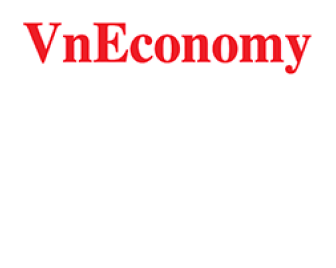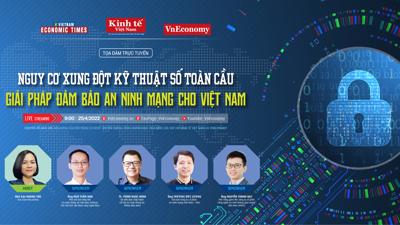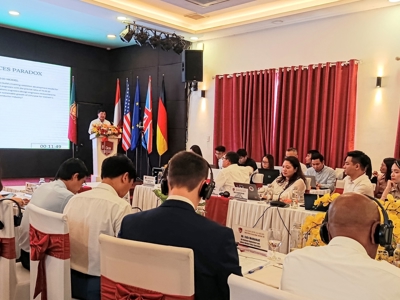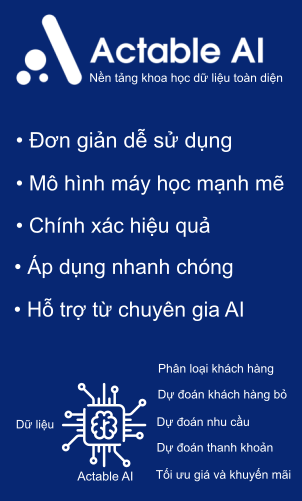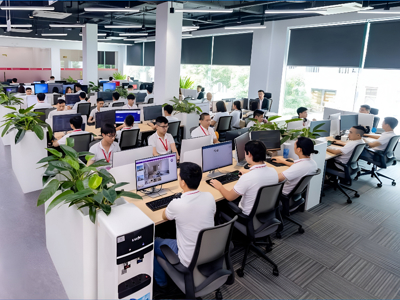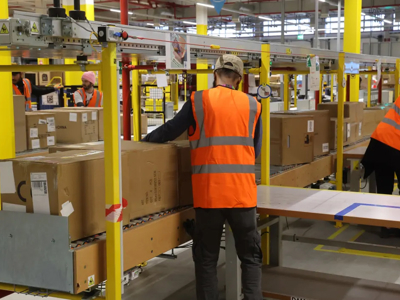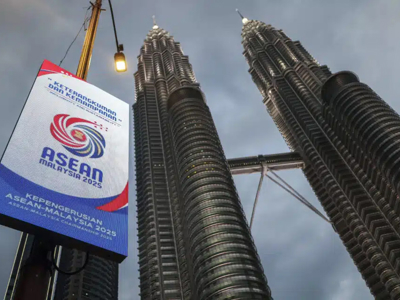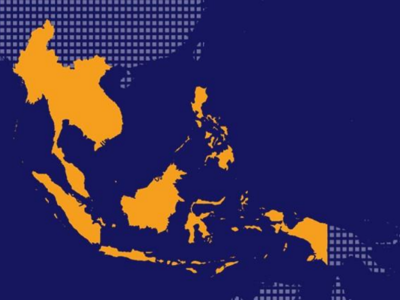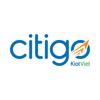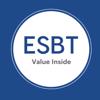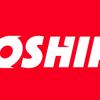Expansive point of entry
A recent UOB conference looked at the benefits Vietnam provides in offering access to ASEAN and the Asian region at large.
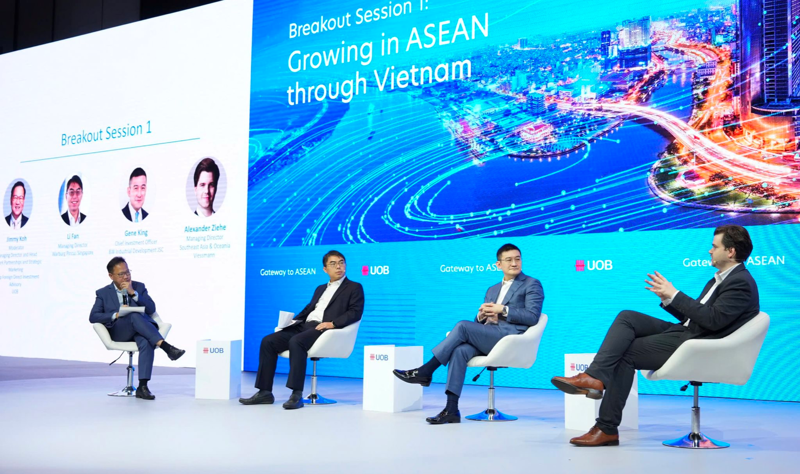
Vietnam boasts several key advantages in investment, including political stability, a business-friendly government, a transparent legal framework, and a strong network of local partners, all of which create favorable conditions for businesses seeking to expand into the ASEAN market. At a panel discussion entitled “Growing in ASEAN through Vietnam”, held within the “Gateway to ASEAN” conference organized recently in Ho Chi Minh City by UOB, leaders from major companies and investment funds such as Warburg Pincus, BW Industrial, and Viessmann shared their experience in navigating the Vietnamese market and scaling their exports.
Vietnam an ideal gateway
Warburg Pincus, one of the world’s oldest and biggest private equity firms, with over $113 billion in assets across 40 countries and territories, has selected Vietnam as one of its top 5 global investment destinations and its third-largest market in Asia. Mr. Li Fan, Managing Director of Warburg Pincus, identified three main reasons why businesses and investors see Vietnam as an ideal gateway to Southeast Asia.
Firstly, its political stability and pro-business government set it apart. “Vietnam is excelling in this regard,” he told the discussion. “Among emerging markets in Asia, it is the only country following the East Asia growth model, alongside South Korea, Japan, China, and Singapore. Multinational companies consistently rank the Vietnamese Government highly for its business-friendly approach, which shows improvements year after year.”
He highlighted the government’s actions during the pandemic, such as signing multiple free trade agreements (FTAs) and encouraging investments in key strategic partner nations. Businesses operating in Vietnam benefit from established connections with other countries and territories and access to free trade zones as well as bilateral and multilateral agreements. Few countries have managed to successfully finalize FTAs with the US, Europe, and Japan in as short a time as Vietnam.
Secondly, Vietnam’s legal framework is increasingly clear and transparent. While some overlapping regulations remain, there have been encouraging initiatives to make the legal environment more transparent, equal, and accessible for businesses.
Vietnam’s attractive FDI policies and low labor costs, at approximately half of China’s, are also clear advantages. Additionally, many investors have yet to fully assess the “China+1” strategy when selecting market locations. With its shared border with China, Vietnam provides a convenient option for supply chain diversification and production shifts away from its northern neighbor, offering more benefits compared to other countries and territories. The Vietnamese Government has also significantly enhanced infrastructure investments in recent years, to around 6-7 per cent of GDP.
Thirdly, Mr. Li Fan said, Vietnam offers a robust network of local business partners. Warburg Pincus has developed a large and diverse investment portfolio in collaboration with local partners, such as industrial real estate developers and VinaCapital, one of Vietnam’s largest investment funds.
Mr. Gene King, Chief Investment Officer of the BW Industrial Development JSC, a leading provider of logistics and industrial real estate for lease in Vietnam, also emphasized that supply chains need to be diversified and decentralized post-Covid-19. “Most businesses understand this,” he said at the discussion. “Companies from Europe and the US are pushing suppliers and manufacturers to diversify, and Vietnam is seen as an attractive option. Today, SMEs [small and medium-sized enterprises] are more flexible with leasing terms and capital flows, allowing them to focus on business plans, manage costs effectively, and pursue sustainability. This is a trend that investors should be aware of when shifting operations to Vietnam.”
Most businesses at the discussion agreed that Vietnam’s investment climate offers numerous advantages, making it an ideal gateway for companies seeking to enter the broader ASEAN market. This is due to the country’s political stability, business-friendly government, transparent legal framework, and extensive network of local partners.
Global thinking, deep local understanding
Mr. Alexandar Ziehe, Managing Director in Southeast Asia and Oceania at Viessmann, said his company chose to invest in Vietnam because of a need for supply chain diversification. Vietnam has emerged as a strong contender within ASEAN, he explained, enabling the company to serve markets beyond Germany, such as Southeast Asia, with future potential for exporting to Europe, Australia, and elsewhere. Vietnam acts as a strategic hub for exports to various regions.
“Expanding our production and operations, establishing Viessmann’s first Southeast Asian factory, at the An Phuoc Industrial Park [in southern Dong Nai province], was absolutely the right decision,” he said. “The local supply chain network is very robust. Asian consumers tend to change rapidly, so the supply chain must evolve just as quickly. Viessmann’s products benefit from diverse supply sources, avoiding dependence on China. Another key to success is Vietnam’s large consumer base, which readily embraces foreign brands. This is an inspiring trend, and Viessmann aims to seize this opportunity.”
Viessmann undertook several steps to fully understand the market, including marketing efforts, gaining cultural insights, and hiring local talent. This was a gradual and challenging process, and it now has many Vietnamese employees in its research and development (R&D) department. “We apply global thinking while leveraging local talent,” he continued. “Therefore, local partnerships are critical, and having a well-established, high-quality supply chain network is essential to producing superior products and delivering them to the right consumers.”
Aligning with an approach of “global thinking, deep local understanding”, Mr. Li Fan emphasized that understanding local culture, laws, and tax benefits helps businesses gain deeper access to the ASEAN market.
However, Mr. Ziehe also noted that Vietnam faces sustainability challenges, particularly in the energy sector. Pursuing sustainable practices in operations, production, and influencing consumer behavior will elevate sustainability efforts, and both businesses and the government need to collaborate to overcome these challenges. “I believe the Vietnamese Government is open and business-friendly, having taken concrete actions to support sustainable growth,” he said. “The international business community will continue to collaborate with local partners, offering mutual support and sharing knowledge for effective outcomes.”
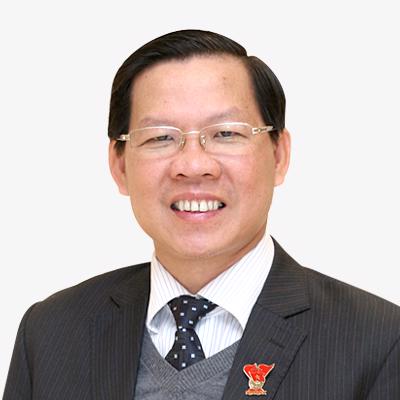
Mr. Phan Van Mai, Chairman of the Ho Chi Minh City People’s Committee
As a dynamic city and major economic hub, Ho Chi Minh City benefits from exceptional policies designed to attract strategic investors. These favorable conditions target key sectors such as innovation centers, R&D hubs, international finance, and technology transfer in areas like IT, biotechnology, automation, clean energy, and microchip production.
The city also has special mechanisms for building ring roads, synchronized highways, and regional infrastructure to expand economic opportunities and strengthen its strategic position in logistics.
With its diverse transportation network, Ho Chi Minh City is well-positioned to become a hub for both domestic and international trade, supported by road, air, rail, and waterway networks. Additionally, Vietnam has improved its logistics infrastructure, helping the country become one of the top 20 global traders. Ho Chi Minh City is working to complete its internal logistics infrastructure, with major progress expected by 2030.
It currently has 17 operational industrial parks, with plans to transform these into high-tech and service-integrated zones, establishing innovation centers and R&D hubs. The city also aims to develop new-generation industrial parks for investors.
Vietnam’s southern region offers an abundant, high-quality workforce, with over 50 per cent of the country’s population being of working age, projected to reach 58 million by 2030. Ho Chi Minh City has nearly 400,000 businesses, about 32 per cent of the national total, and strong connections to both domestic and international supply chains, including in ASEAN.
With a population of more than 10 million and strong purchasing power, the city presents a lucrative market. Its close links to the Mekong Delta further extend this potential, with the combined region housing nearly 40 million people.
Currently, 125 countries and territories are investing in the city, with over 13,000 projects and capital of nearly $90 billion. Singapore leads the way, with nearly 2,000 projects.
Ho Chi Minh City is a welcoming, vibrant place to live and invest in. We are eager to collaborate with investors, fostering mutual success and growth for both the city and its partners.
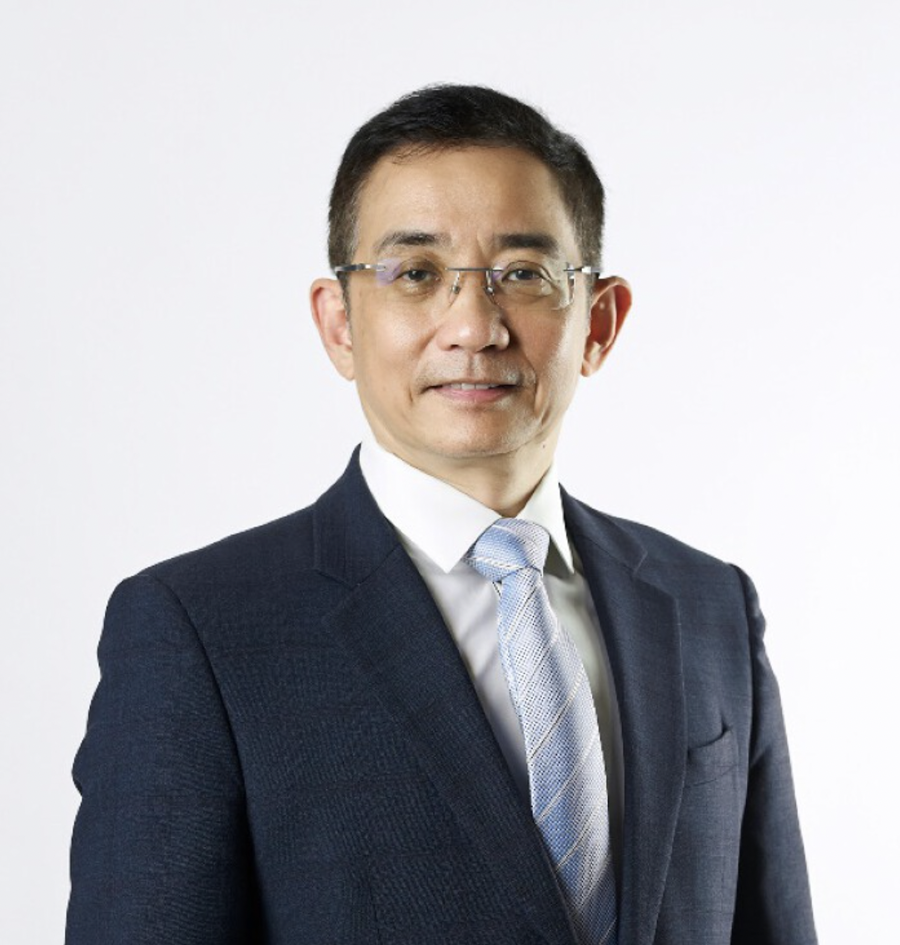
Mr. Victor Ngo, CEO of UOB Vietnam
The global economy has been affected by severe uncertainties since the Covid-19 pandemic, such as geopolitical tensions, inflation, supply chain disruptions, and moderated global demand. However, the Asian economy remains resilient due to its collective strength and unique potential. The Asian Development Bank forecasts that ASEAN’s growth will reach 5 per cent in 2024. With this continued growth, ASEAN has established itself as a pivotal player in the global economy. As businesses increasingly look to Southeast Asia for expansion, it is crucial to ensure our region remains conducive to investment and competitive on the global stage.
Vietnam’s dynamic development and strategic position within ASEAN highlight its role as a vital contributor to the regional economy. As Vietnam gains global attention and serves as a gateway to ASEAN, I am pleased that we are hosting this conference in such a thriving market this year.
As the One Bank for ASEAN, UOB remains committed to acting as both a catalyst and enabler. Our extensive network and system of support, which extends to governments, investors, and ecosystems of partners, enables us to support businesses in Vietnam and across ASEAN. In particular, UOB’s strong presence in ASEAN, along with our FDI Advisory unit across the region - including Vietnam - aims to facilitate FDI inflows, help businesses establish and grow, and encourage trade flows within and beyond the region.
With our long-term commitment to the region and ongoing investments in Vietnam, UOB is well-positioned to help businesses navigate challenges confidently and offer innovative solutions to realize their full potential. I believe we are the right partners and connectors for successful entry into Vietnam and expansion into ASEAN through Vietnam.
